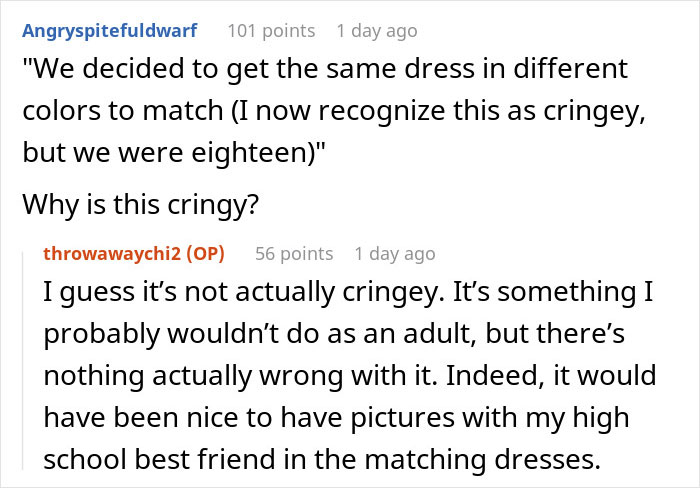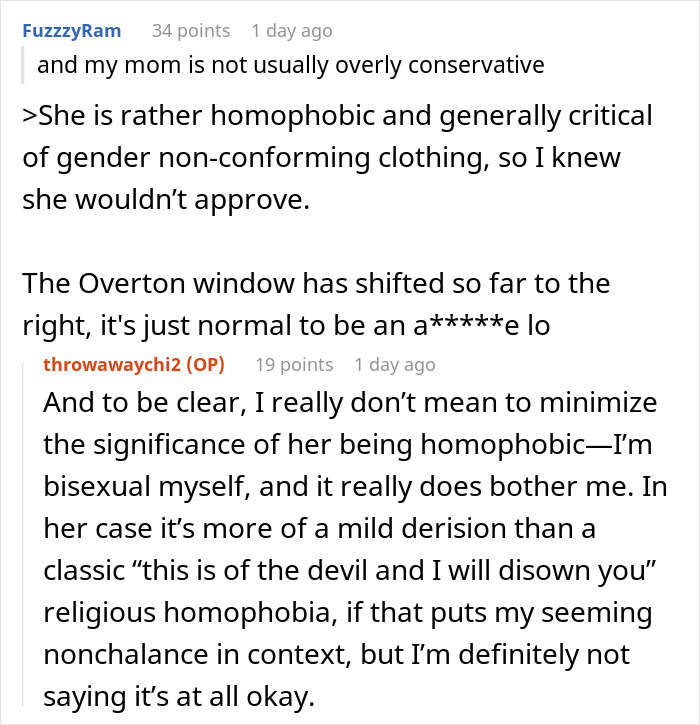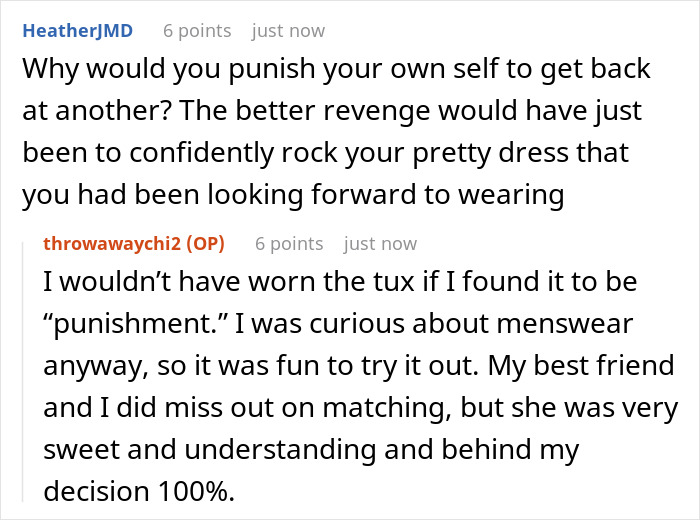Prom is one of the most important events in a teenager’s life, and choosing the right attire for it is a crucial step of preparation.
When Reddit user Throwawaychi2 was preparing for hers, her mom seemed happy to help. The lady even offered to take her dress to one of her friends for the final touch-up.
But when the mom saw what the girl had picked to wear for the occasion, she felt it was so inappropriate that she had to shame her daughter.
Little did the mom know, this would push the teen to opt for something she disliked even more.
This teenager was excited to go to her prom, but her mother started criticizing her dress

Image credits: valeriygoncharukphoto/Envato elements (not the actual photo)
So she came up with a way to get back at her
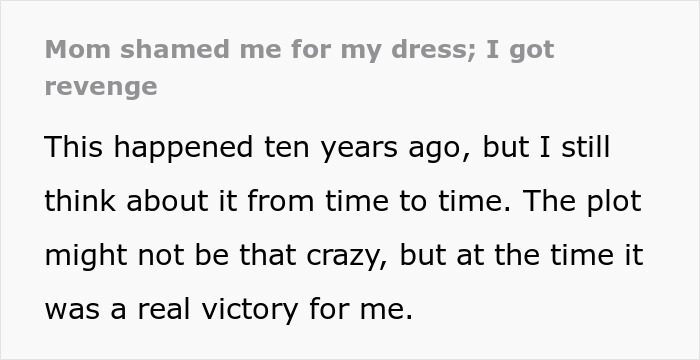
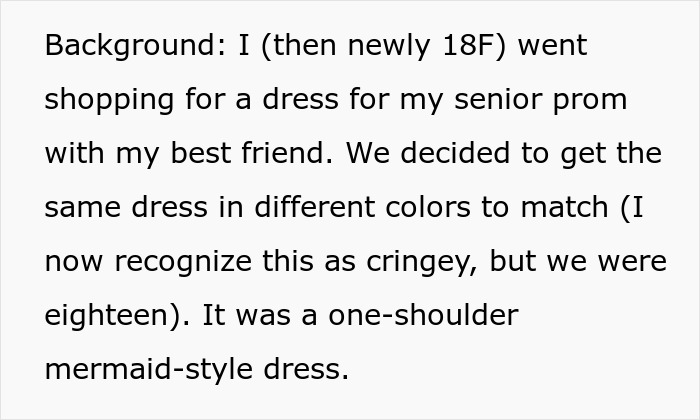
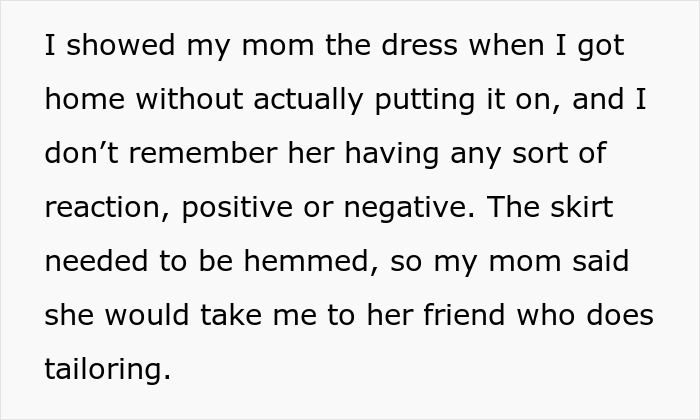
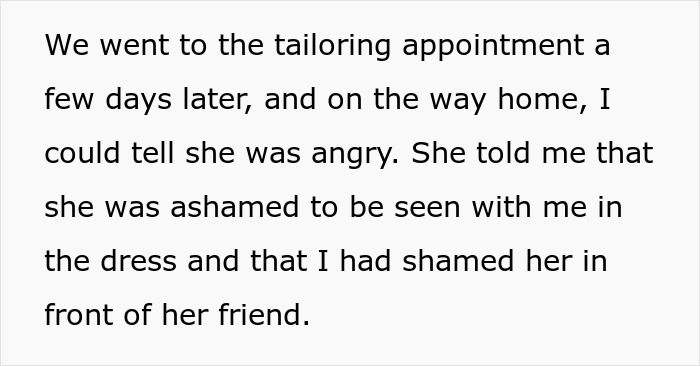
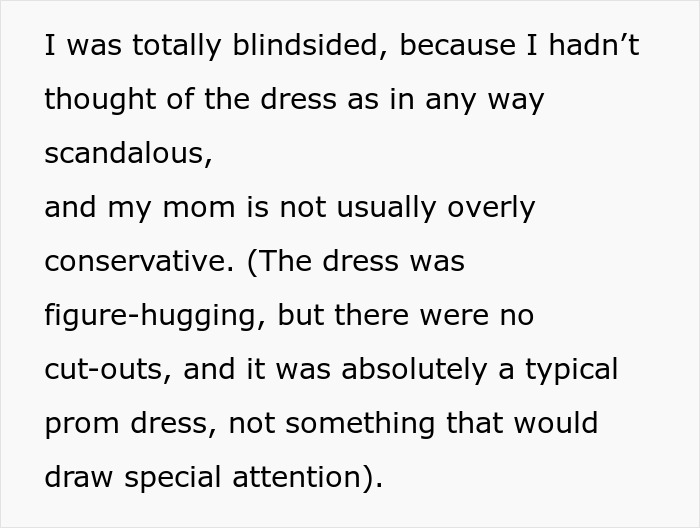
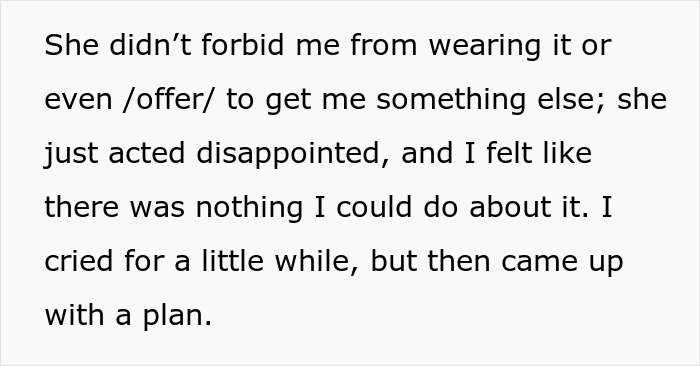
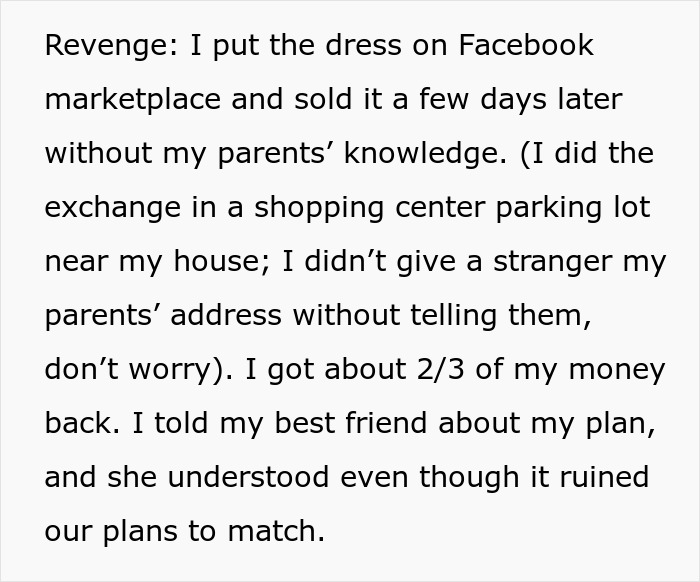


Image credits: LightFieldStudios/Envato elements (not the actual photo)
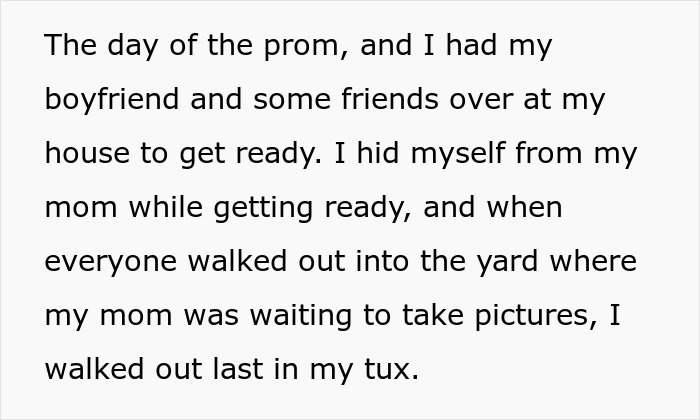

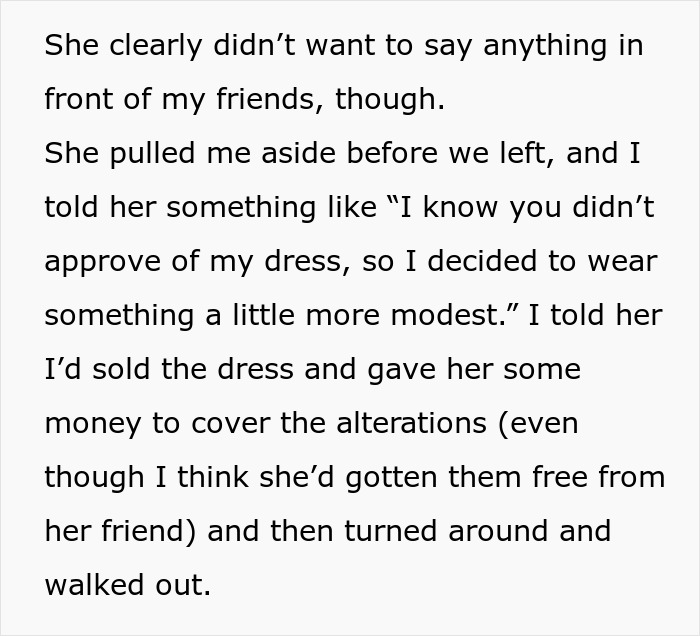
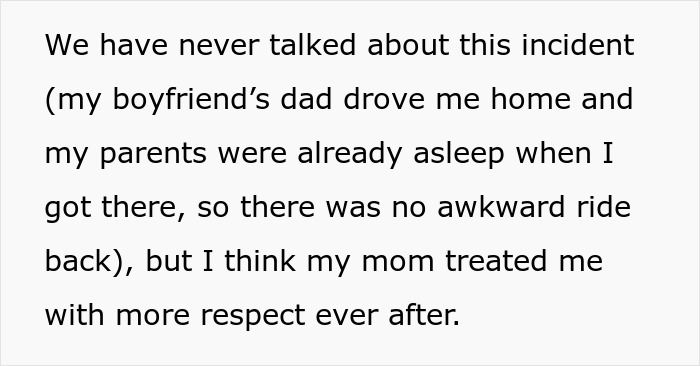
Image credits: throwawaychi2
Policing their kids’ outfits won’t earn parents much respect
The desire to express your autonomy through the clothes that you wear usually starts in childhood.
“There [are] very few ways kids can establish independence or let you know their will when they’re very young, but they do have some control over what’s touching their bodies,” said Aaron E. Carroll, M.D., professor of pediatrics at Indiana University School of Medicine. Babies will fight getting dressed, too, but that’s less a conscious play for autonomy and more a reaction to being restrained, Dr. Carroll explained.
As you get older, the battles change. But according to Dr. Carroll, parents have to give in. Not just because clothing is such a marker of independence, but also because they will, similar to the mom from the Reddit post, get outsmarted.
Kids might appease their parents at first, wearing whatever it is that they are forced to, but chances are, they will change their outfits as soon as they’re out of sight.
Interestingly, allowing them control over their clothing can actually benefit parents in the long run, as it could make them more likely to listen to their old folks when they do make comments or suggestions about their outfits, said Dr. Carroll.

Image credits: RDNE Stock project/Pexels (not the actual photo)
Catherine Manning, who is the founder of Melbourne-based workshops that provide in-school self-esteem programs for girls and boys as well as the director of the children’s rights advocacy group Say No 4 Kids, urges parents to question what makes them uncomfortable — and “who they’re trying to appease” — before starting a conversation about clothing.
“A lot of those dress codes are very arbitrary. And if a [girl] wants to wear a singlet top [to] a school dress-up day, why do we have a problem with that?” Manning asked.
She believes society’s historical preoccupation with girls’ attire is tied up in sexism and classism. “We’re not constantly looking at men’s attire,” she said. “Most dress codes for girls and women have their roots in patriarchy and religious institutions obsessed with purity.”
This is not to say that parents can never speak to their daughters about clothing, but Manning believes it’s important to avoid veering into shaming territory, where girls’ clothing and bodies — how they present them and what they do with them — are policed.
“The slightest comment to your daughter about what she’s wearing can have a really lasting impact on her,” Manning added. “So we really do have to be careful.”
Maybe the Redditor’s mom could have also taken a pause and reassessed her discomfort instead of passing judgment on her daughter.
As her story went viral, the teenager joined the discussion in the comments
